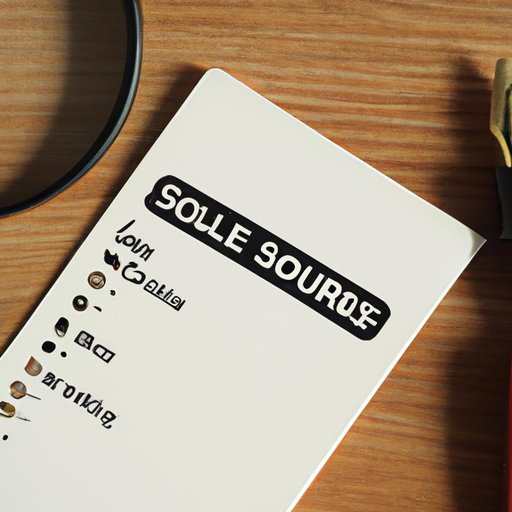
Introduction
Starting a business involves a lot of legal considerations, and one of them is obtaining a business license. As a sole proprietor, you may wonder whether you need a business license and what legal requirements are necessary to operate your business legally. In this article, we will explore the legal requirements surrounding business licenses for sole proprietors, the benefits, and the pros and cons of obtaining one to help you make informed decisions for your business.
The Importance of Knowing if Sole Proprietors Need a Business License
Before starting a business as a sole proprietor, it’s crucial to understand the legal requirements for obtaining a business license. Failure to comply with these requirements can lead to both legal consequences and hindrances in business operations such as penalties, lawsuits, and loss of credibility. Knowing these requirements will ensure that you are on the right side of the law and can operate your business smoothly.
For example, in some states, you may be required to obtain a license even if you work from home or provide your services online. Failure to comply with such requirements could lead to a cease and desist order, fines or even the revocation of your business license.
Therefore, it’s essential to research and understand your legal obligations and comply with them to avoid unnecessary legal troubles and hindrances to your business operations.
Understanding the Legal Requirements for Sole Proprietorship Business Licenses
The general legal framework surrounding business licenses can vary depending on the state or local government requirements where you are operating your business. Therefore, it’s essential to research and understand the specific requirements in your location.
The type of business you operate and its location can determine whether you need a business license. For instance, some businesses may require a state license, while others may need a county or city license. Moreover, certain industries such as construction, healthcare, or childcare may require specific licenses. It’s best to consult with your local government’s licensing department or engage a professional consultant to help you determine which type of license(s) your business requires.
Sole Proprietors: Do You Really Need a Business License to Operate Legally?
There are common misconceptions and myths regarding business licenses that may mislead entrepreneurs into thinking that they don’t need one. However, operating a business without a license can be illegal and put your business at risk.
Not having a business license can lead to penalties, loss of credibility, and a negative impact on your business’s reputation. Additionally, not having a license may hinder your ability to obtain business insurance or financing, which can be crucial for sustaining and growing your business.
While there may be exceptions or exemptions for certain types of businesses or industries, it’s essential to research and comply with the applicable licenses in your location to avoid expensive legal problems and protect your business’s reputation.
Navigating the Rules and Regulations for Sole Proprietors and Business Licenses
Obtaining a business license involves a variety of requirements and steps, depending on the type of business and location. To apply for a business license, you may need to provide your business’s name and location, obtain a Tax Identification Number (TIN) from the Internal Revenue Service (IRS), pay the necessary fees and obtain other permits or certificates required by your state or city.
It’s important to note that some business licenses require ongoing reporting or renewal requirements. Therefore, you will need to ensure that you comply with such requirements to retain your business license.
Moreover, there may be other legal issues that entrepreneurs should be aware of, such as zoning regulations, business taxes, and employment laws. It’s best to hire a professional consultant or seek legal advice to ensure that you are fully aware of all your legal obligations as a sole proprietor.

Why Getting a Business License Should be a Top Priority for Sole Proprietors
Obtaining a business license offers various benefits to a sole proprietor, such as increased credibility and legitimacy. Having a business license can help attract more customers, investors, and lenders, as they see you as a legitimate business owner. Additionally, it can help your business meet eligibility criteria for government contracts, business loans, grants and may even be required for specific industry certifications.
However, not having a business license can put your business at risk of legal penalties and damage your reputation with potential customers or investors.
Sole Proprietorship and Business License Requirements: What You Need to Know
From the above discussion, it’s evident that obtaining a business license is essential to operate your business legally and avoid legal consequences. Therefore, it’s essential to research and comply with the applicable licenses in your location to avoid expensive legal problems and protect your business’s reputation.
The Pros and Cons of Getting a Business License as a Sole Proprietor
Getting a business license offers several advantages, such as increased credibility, eligibility for financing, and protection from legal penalties. However, it also involves costs and additional paperwork, ongoing reporting, and renewal requirements. Therefore, it’s essential to weigh the pros and cons and decide whether getting a business license is necessary for your specific business.
Conclusion
Knowing whether a sole proprietor needs a business license is crucial to comply with legal requirements, avoid penalties, and protect your business’s reputation. It’s essential to research and understand the legal requirements and comply with them to avoid unnecessary legal troubles. Therefore, entrepreneurs should take necessary steps in obtaining the appropriate business license to safeguard their business operations and growth potential.




